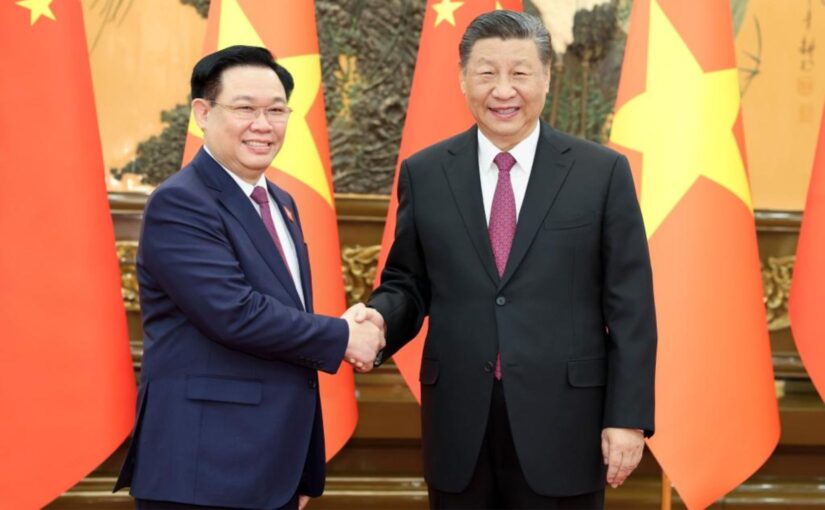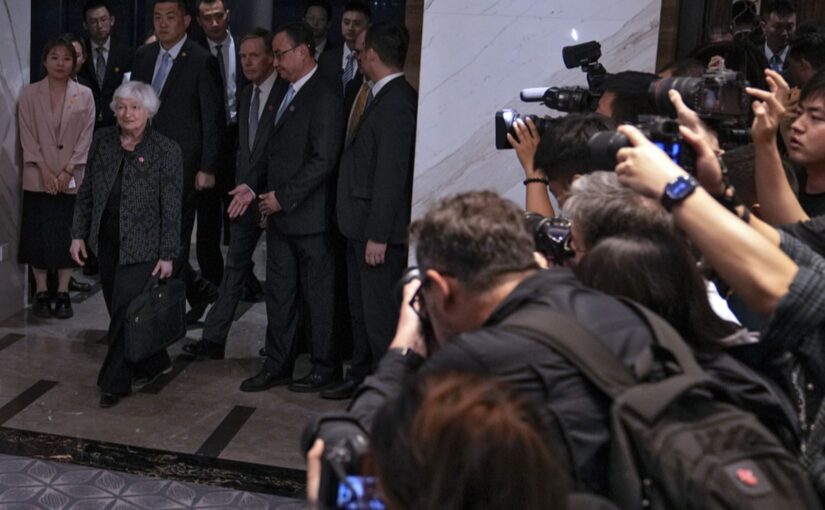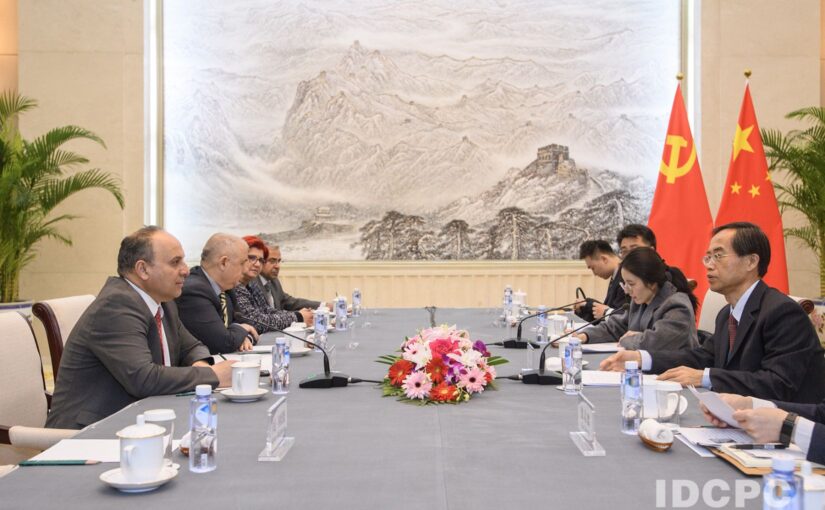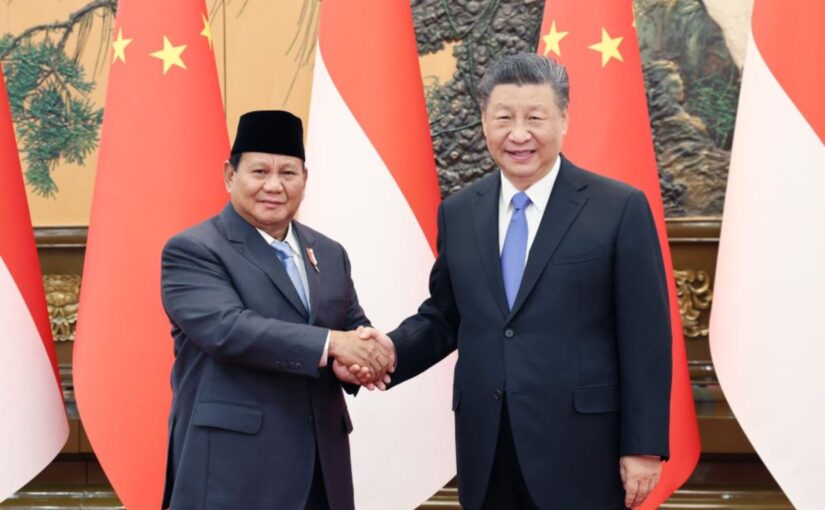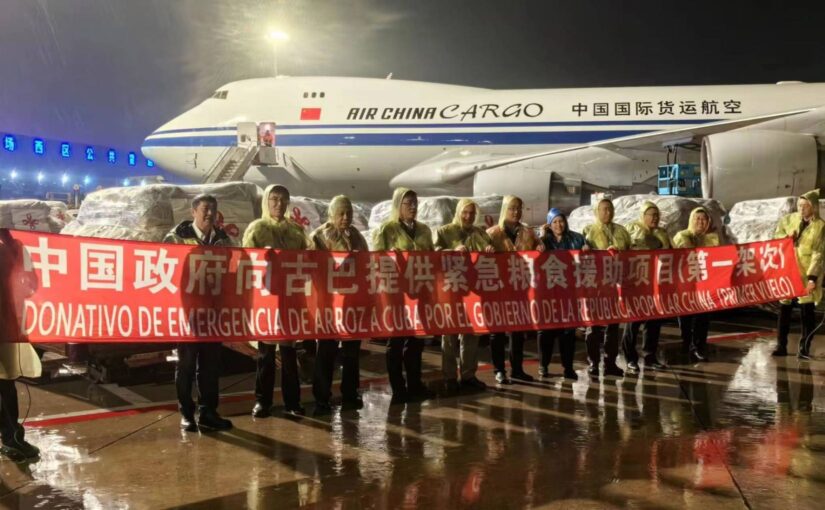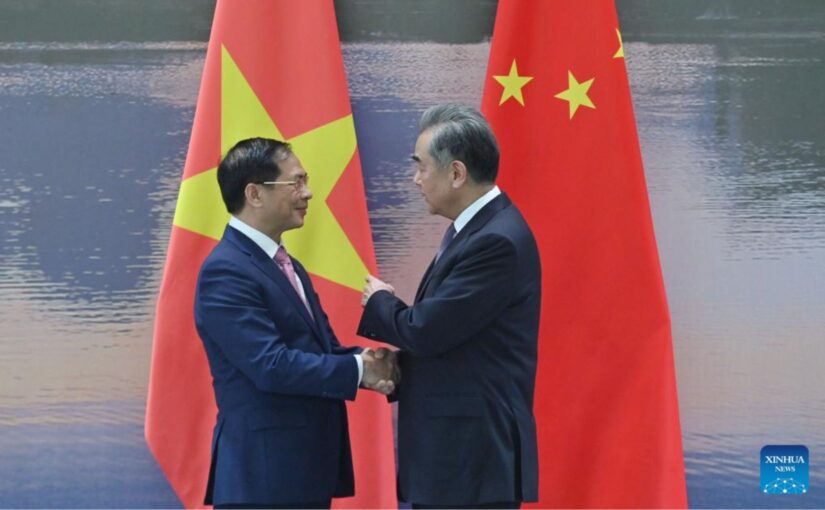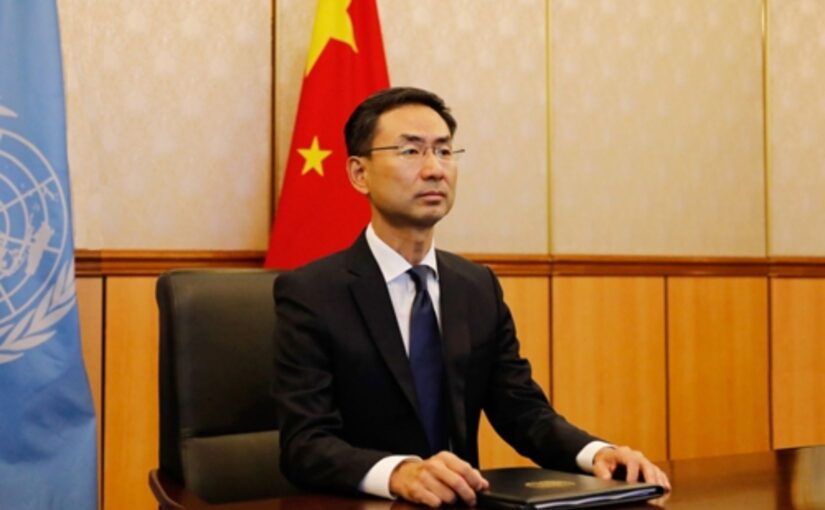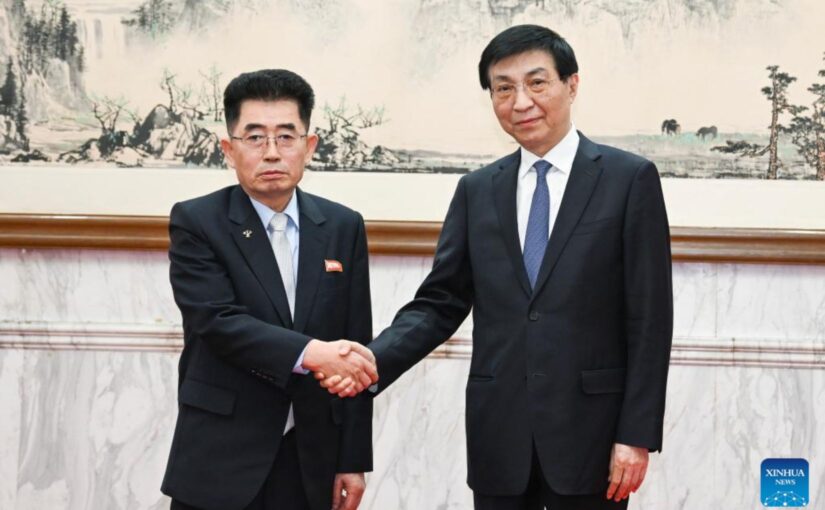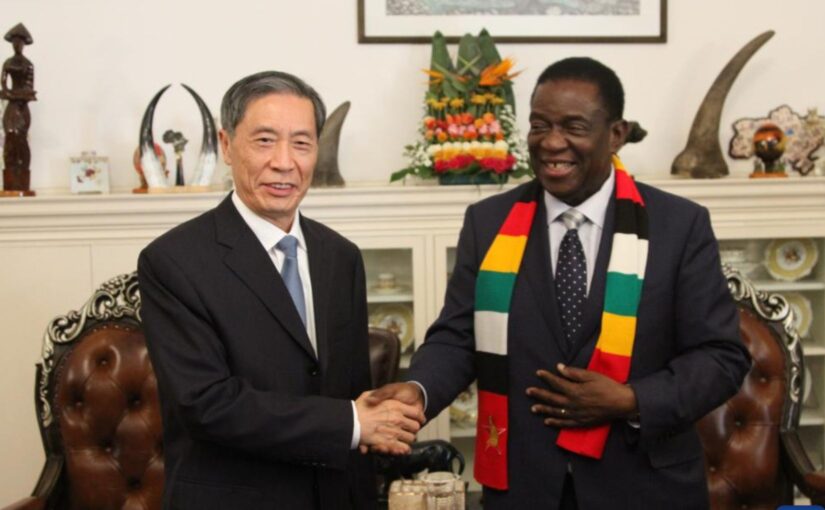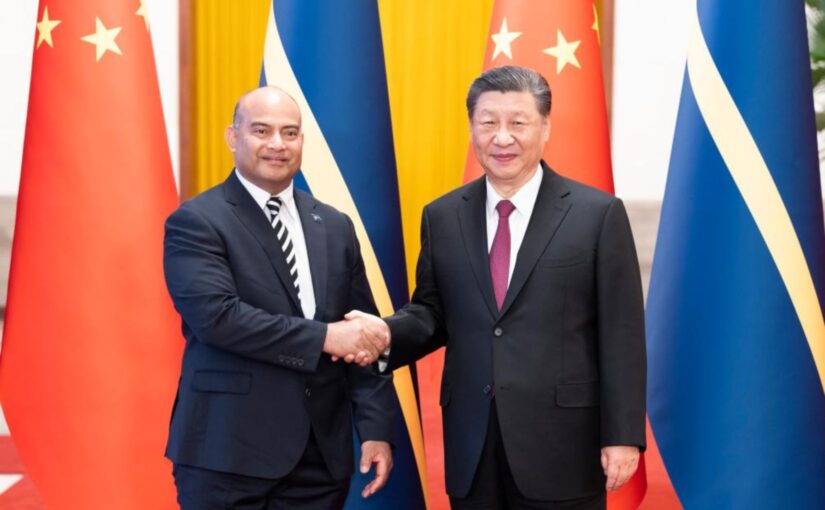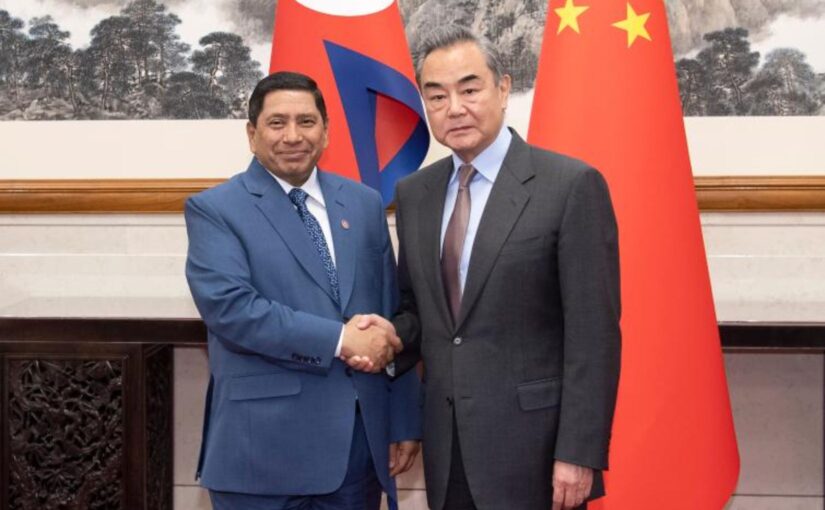President of Nauru David Adeang paid a state visit to China at the invitation of his counterpart Xi Jinping from March 24-29. The visit comes soon after the tiny South Pacific island nation resumed diplomatic relations with China on January 24.
The two heads of state met on March 25 and Xi noted that Nauru’s political decision to adhere to the one-China principle and restore diplomatic ties with China in January is a move that conforms to the trend of history and the times.
Friendship, no matter its beginning, will have a bright future, and cooperation, regardless of scale, will be productive as long as it is sincere, Xi said.
He added that China-Nauru relations have opened a new chapter in history, and China is ready to work with Nauru to create a better future for relations between the two countries and bring more benefits to the two peoples.
China welcomes Nauru as another country to sign the Belt and Road cooperation document with China, adding that China is ready to expand practical cooperation with Nauru in trade, investment and infrastructure construction, and provide assistance to Nauru for its independent and sustainable development without political strings attached.
Stressing that treating others as equals is a defining feature of China’s diplomacy, Xi said China always believes that all countries, big or small, strong or weak, rich or poor, are equal members of the international community.
China has always been a member of the developing world, and China’s vote in the United Nations Security Council always belongs to the developing countries, Xi said.
Noting that China-Nauru relations are based on mutual respect, equality, mutual benefit and mutual support, Xi noted that China firmly supports Nauru in safeguarding national sovereignty, security and development interests, and in independently pursuing a development path suited to its national conditions.
Calling on the two sides to strengthen exchanges in education, culture, health, youth and other fields, Xi said China welcomes more young Nauruan people to study in China, and is willing to provide Nauru with assistance to address climate change within the framework of South-South cooperation.
China is willing to strengthen communication and coordination with Nauru in multilateral fields such as the United Nations and the Pacific Islands Forum, jointly advocate an equal and orderly multipolar world and inclusive economic globalisation that benefits all, and safeguard the common interests of developing countries, the Chinese president said.
Adeang said it is a great honour to be invited for a state visit to China and experience China’s long history, splendid culture and vibrant development.
Not long ago, Nauru decided to stand on the right side of history and resume diplomatic relations with China on the basis of recognising and adhering to the one-China principle, which is an important landmark in Nauru-China relations and opens a new chapter in Nauru’s national development and bilateral relations, he added.
He said Nauru highly appreciates China’s commitment to equality among all countries, no matter big or small, and is willing to abide by the one-China principle, and continuously deepen cooperation with China.
As the world today faces many global challenges, common progress and prosperity can only be achieved through solidarity and cooperation, Adeang said, noting that the series of global initiatives put forward by President Xi Jinping is of great significance.
In a joint statement issued by the two countries, “the Nauruan side spoke highly of China’s great development achievements in the new era under the leadership of President Xi Jinping, and believes that the Chinese path to modernisation offers new options and solutions to fellow developing countries seeking independent development. Nauru welcomes and supports the vision of building a community with a shared future for humanity and the Global Development Initiative, the Global Security Initiative and the Global Civilisation Initiative set forth by President Xi Jinping.”
The two sides agreed that all countries, regardless of size, strength and wealth, are equals. The Chinese side firmly supports Nauru in upholding its sovereignty, security and development interests, and in independently choosing a development path suited to its national conditions.
The Chinese side welcomes and supports Nauru in joining the Asian Infrastructure Investment Bank (AIIB) at an early date. The two sides agreed to expand exchanges and cooperation in such areas as culture, education, health, sport, tourism, youth, media, and human resources, and take policy measures to promote their cross-border travel.
They agreed that climate change is a global challenge that requires all countries to work together to address it under the framework of multilateralism and following the principles of equity, common but differentiated responsibilities and respective capabilities. The two sides will jointly promote the full and effective implementation of the United Nations Framework Convention on Climate Change and its Paris Agreement.
In a particularly significant section, China and Nauru clearly addressed the twin issues of Japan’s discharge of waste water from the stricken Fukushima nuclear reactor and Britain’s planned provision of nuclear-powered submarines to Australia under the AUKUS agreement that also includes the United States, stating:
“The two sides are committed to working with all sides to promote peace, development and stability in the Pacific Islands region. The two sides firmly uphold the international nuclear non-proliferation regime with the Treaty on the Non-Proliferation of Nuclear Weapons as the cornerstone and the South Pacific Nuclear Free Zone Treaty, and call on relevant countries to fulfil international obligations and prudently handle the discharge of nuclear contaminated water, cooperation on nuclear-powered submarines, etc.”
It added: “The Chinese side reiterated its active support for the Pacific Island Countries in implementing the 2050 Strategy for the Blue Pacific Continent. The two sides agreed to strengthen cooperation under multilateral mechanisms including the China-Pacific Island Countries Foreign Ministers’ Meeting and the China-Pacific Island Countries Economic Development and Cooperation Forum and under multilateral cooperation platforms for emergency supplies, climate response, poverty alleviation and development, disaster prevention and mitigation, Juncao technology [a Chinese innovation that allows for the breeding of a hybrid grass from fungi and herbaceous plants, thereby addressing issues of poverty, soil erosion and desertification] and agriculture, and work together for a closer community with a shared future between China and Pacific Island Countries.”
Continue reading China and Nauru committed to promoting peace, development and stability in the Pacific 